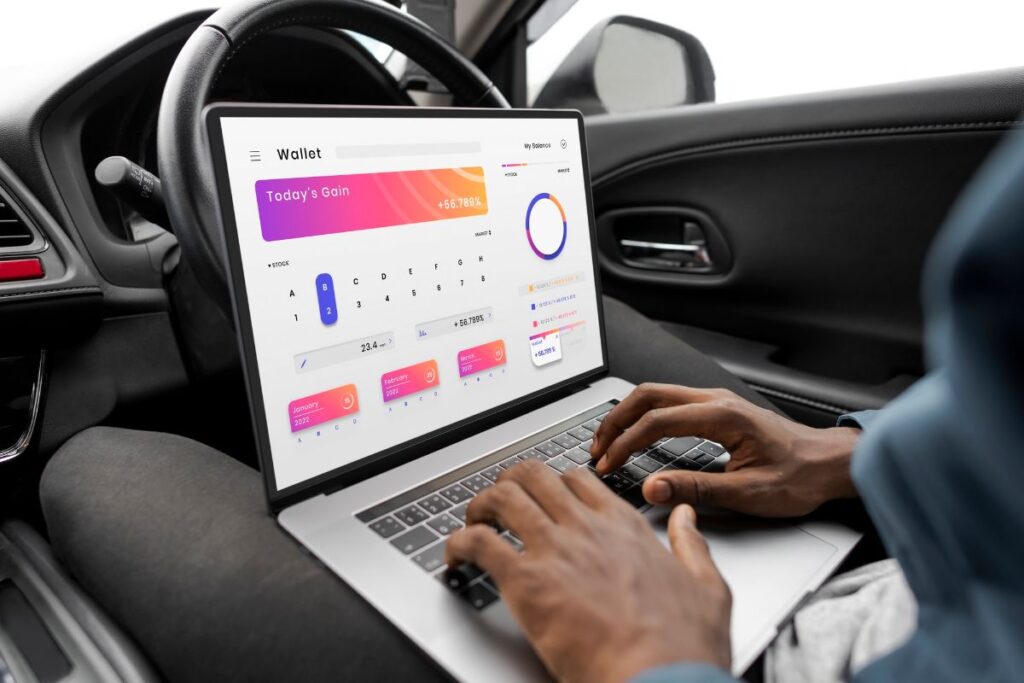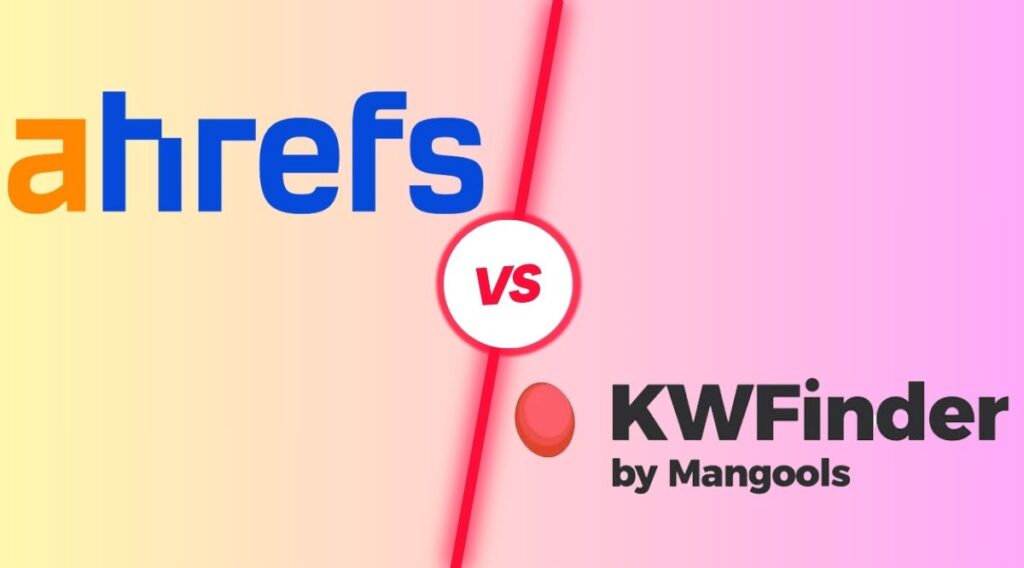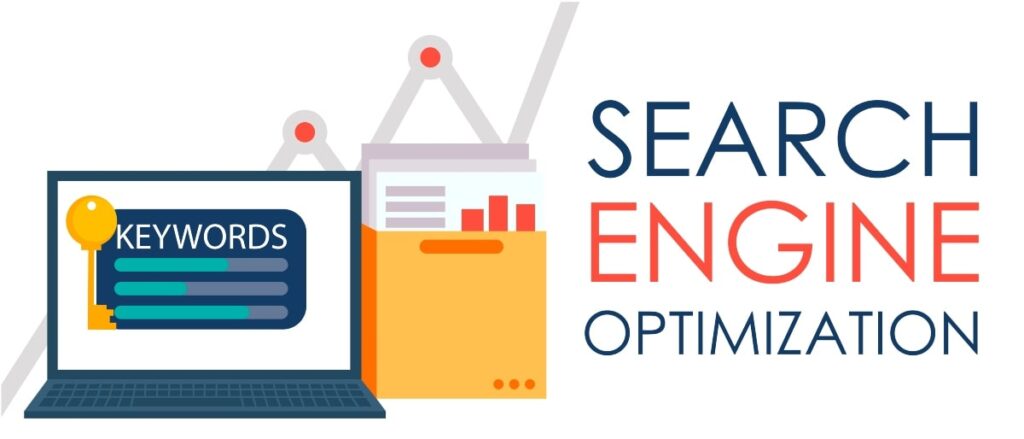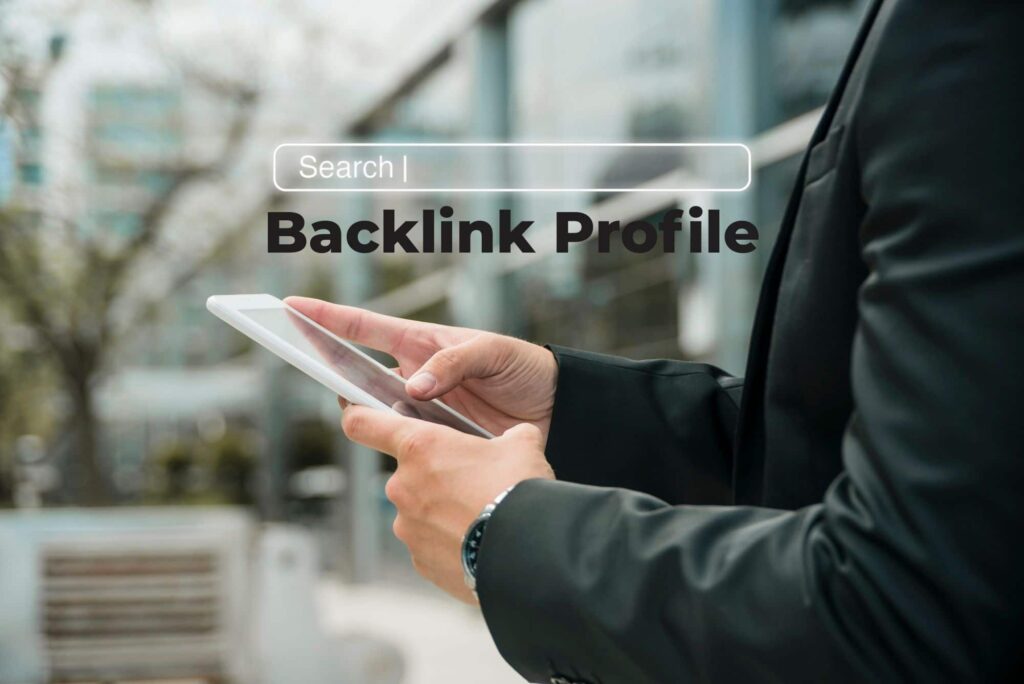In today’s era dominated by digital platforms, social media has morphed into an indispensable tool for businesses across various sectors, including the automotive industry. Car dealerships have an unrivaled chance to reach a large audience with Automotive Social Media Marketing on sites like Facebook, Instagram, and Twitter. It enables them not only to connect with fresh clientele but also to fortify their online presence and amplify brand recognition. This potent marketing strategy capitalizes on the expansive reach of social media to spotlight car dealerships and their array of offerings to a broader audience. By curating compelling content, pinpointing specific demographics, and strategically employing paid promotions, dealerships can cultivate a robust digital footprint, and channel increased traffic to their online domains.
Understanding Automotive Social Media Marketing
At its core, automotive social media marketing epitomizes a digital marketing paradigm engineered to leverage the omnipresence of social media platforms in amplifying the visibility of car dealerships and their product inventory. This multifaceted approach encompasses the creation of captivating content, precise demographic targeting, and judicious utilization of sponsored content to foster a compelling online presence and steer traffic toward dealership websites. Platforms such as Facebook, Instagram, and Twitter emerge as instrumental conduits through which car dealerships can tap into vast reservoirs of potential clientele, positioning themselves as reputable entities amidst the cutthroat milieu of automotive commerce.
Significance of Automotive Social Media Marketing
Gone are the days when social media was merely a realm for recreational pursuits; today, it stands as a pivotal repository of product information, especially for the discerning Gen Z demographic. Platforms like TikTok have transcended mere entertainment to become veritable search engines in their own right. Against this backdrop, the importance of automotive social media marketing cannot be overstated. Herein lie some compelling reasons why social media holds sway over the automotive domain:
- Mobility: The fluidity of social media content empowers potential customers to engage with dealership offerings irrespective of temporal or spatial constraints, facilitating seamless browsing and decision-making.
- Access: Social media campaigns furnish dealerships with a conduit to connect with individuals who might have yet to consider their services, thereby broadening the scope of clientele outreach.
- Human Touch: Unlike impersonal dealership websites, social media posts exude a personalized aura that resonates with audiences on a deeper level, fostering meaningful engagement and rapport.
- Enhanced Brand Recognition: Active engagement on social media platforms serves as a potent mechanism for bolstering brand visibility and fortifying the dealership’s standing as a trustworthy authority within the automotive domain.
- Augmented Website Traffic: Leveraging social media as a springboard for disseminating website links enables dealerships to catalyze inbound traffic, thereby enhancing the prospect of customer conversions.
- Elevated Customer Engagement: Automotive social media marketing engenders a direct line of communication between dealerships and their clientele, facilitating real-time interaction and issue resolution.
- Insightful Customer Analytics: By scrutinizing social media metrics, dealerships can glean invaluable insights into customer preferences, behaviors, and inclinations, thereby informing product refinement and service enhancement initiatives.
- Fostering Customer Loyalty: Nurturing a symbiotic relationship with customers through social media engenders a sense of loyalty and reciprocity, thereby engendering repeat patronage and advocacy.
- Cost-Effective Outreach: Compared to traditional marketing modalities, automotive social media marketing offers a cost-effective avenue for startups and small-scale businesses to maximize their marketing impact within constrained budgets.
- Revenue Augmentation: By amplifying brand recognition, augmenting website traffic, and nurturing customer relationships, social media marketing constitutes a formidable driver of sales and revenue generation for dealerships.
- SEO Enhancement: Enhancing search engine results and increasing online visibility can be achieved by utilizing social media to obtain high-quality backlinks.
- Customer Satisfaction Amplification: By delivering exemplary customer service on social media platforms, dealerships can enhance customer satisfaction levels, catalyzing positive word-of-mouth referrals and bolstering brand reputation.
- Competitive Edge: Active engagement on social media confers upon dealerships a competitive edge, distinguishing them as trailblazers within the automotive landscape and fostering brand differentiation.
Which Social Media Sites Work Best for Social Media Marketing in the Automotive Industry?
Selecting the appropriate channels to interact with your audience when it comes to automobile social media marketing is essential to optimizing the reach, engagement, and general efficacy of your marketing initiatives. While each social media platform offers unique opportunities and advantages, some are particularly well-suited for connecting with automotive enthusiasts, potential buyers, and industry influencers. Here are some of the best social media platforms for automotive social media marketing:

Instagram is a visual-centric platform that has become increasingly popular among automotive enthusiasts and brands alike. Instagram provides automotive businesses with a visually engaging platform to showcase their vehicles, features, and brand lifestyles through high-quality images and videos. Features like Instagram Stories, IGTV, and Reels provide:
- Additional avenues for creativity and storytelling.
- Making it the perfect venue for increasing brand recognition.
- Engaging with followers.
- Driving traffic to your website or dealership.
YouTube
YouTube, the second-biggest search engine globally, is a fantastic tool for social media marketing for cars. With millions of automotive-related videos uploaded and consumed daily, YouTube offers automotive brands the opportunity to reach a vast audience of potential buyers, enthusiasts, and DIYers. From vehicle reviews and tutorials to behind-the-scenes footage and brand campaigns, YouTube allows automotive brands to showcase their expertise, products, and brand personality in a highly engaging and shareable format.
Facebook remains one of the largest and most widely used social media platforms globally, making it an essential tool for automotive social media marketing. With its diverse user base and robust advertising capabilities, Facebook offers automotive brands the opportunity to target specific demographics, interests, and behaviors with precision. Whether through organic posts, paid ads, or Facebook Groups, automotive brands can leverage Facebook to build communities, foster engagement, and drive leads and conversions.
Twitter is a real-time, conversational platform that lends itself well to automotive social media marketing, particularly for news updates, industry trends, and customer service. Automotive brands can use Twitter to share timely updates, participate in industry conversations, and engage with followers in real time. With its character limit and fast-paced nature, Twitter encourages concise and impactful messaging, making it an ideal platform for quick announcements, promotions, and customer feedback.
LinkedIn may not be the first platform that comes to mind for automotive social media marketing, but it offers unique opportunities for reaching B2B audiences, industry professionals, and decision-makers. Automotive brands can use LinkedIn to share thought leadership content, industry insights, and career opportunities, positioning themselves as experts in their field and building valuable connections within the automotive industry.
Utilizing Paid Advertising on Social Media Platforms
While organic reach remains valuable, paid advertising offers automotive brands a targeted and scalable approach to reaching their desired audience on social media platforms. From sponsored posts and carousel ads to video ads and immersive experiences, the plethora of advertising options available allows brands to tailor their messaging to specific demographics, interests, and behaviors. By allocating budget strategically and optimizing ad creative based on performance metrics, brands can maximize their return on investment (ROI) and drive tangible business outcomes through social media advertising.
Setting Objectives for Automotive Social Media Campaigns
Before diving into the world of automotive social media marketing, brands must define clear objectives and goals for their campaigns. Setting SMART goals guarantees that marketing initiatives are targeted, quantifiable, and in line with overarching business goals, regardless of the goal—increasing brand awareness, generating leads, driving website traffic, or increasing sales. Developing tailored ads that attract prospective buyers also necessitates a deep comprehension of the psychographics and demographics of the target market.
Influencer Marketing in the Automotive Industry
Leveraging Expertise and Credibility
Influencers in the automotive industry often possess a wealth of knowledge, expertise, and credibility in their respective niches, whether it’s car reviews, DIY maintenance tips, or automotive lifestyle content. Automotive brands may leverage the knowledge and authority of influencers who are well-respected and trusted in their communities to improve their brand image, authority, and credibility in the eyes of their target audience.
Reaching Niche Audiences
One advantage of influencer marketing in the automotive industry is its ability to reach specific audiences and communities that may need help accessing traditional advertising channels. Influencers are a great way for brands to connect with their target audience. Whether it’s fans of a particular car brand, people who follow a specific automotive lifestyle, or DIY enthusiasts seeking maintenance advice, influencers can help brands tailor their messaging and offerings to specific segments of the market.
Driving Brand Awareness and Engagement
Through their natural and accessible material, influencers can magnify brand messages, start conversations, and increase engagement. By collaborating with influencers on sponsored content, brand partnerships, or product placements, automotive brands can increase their visibility, reach, and exposure to a broader audience of potential customers. Moreover, influencers often have highly engaged and loyal followers who actively interact with their content, thereby facilitating meaningful interactions and fostering brand engagement.
Humanizing the Brand
Influencer marketing offers automotive brands the opportunity to humanize their brand and connect with consumers on a personal level. Through authentic storytelling, behind-the-scenes footage, and candid interactions, influencers can help humanize the brand, showcase its values, personality, and culture, and forge emotional connections with its audience. By leveraging influencer partnerships, automotive brands can position themselves as relatable, trustworthy, and approachable, thereby strengthening brand loyalty and affinity among consumers.
Influencing Purchasing Decisions
Influencers can sway consumer purchasing decisions through their recommendations, endorsements, and product reviews. Research indicates that customers are just as likely to believe suggestions from influencers as they are from friends or relatives. Automotive manufacturers can harness the power of peer-to-peer recommendations to promote consideration, preference, and, eventually, sales by collaborating with influencers who share their values and appeal to their target demographic.
Measuring the Success of Automotive Social Media Campaigns
Effective measurement and analytics are essential for evaluating the performance of automotive social media campaigns and optimizing future strategies. To enhance their marketing efforts, brands can monitor key performance indicators (KPIs) such as engagement rate, reach, impressions, click-through rate (CTR), conversion rate, and return on ad spend (ROAS). Leveraging analytics tools and platforms like Facebook Insights, Instagram Insights, Google Analytics, and third-party social media management software empowers brands to make data-driven decisions and refine their social media marketing strategies for maximum impact.
Case Studies: Successful Automotive Social Media Campaigns
To illustrate the principles and strategies discussed above, let’s examine some real-world examples of automotive brands that have excelled in social media marketing.
Tesla’s Twitter Engagement
Tesla has attracted a lot of interest and interaction on Twitter thanks to its cutting-edge electric cars and unconventional marketing strategy. With clever repartee, product announcements, and interactive material, Tesla’s Twitter account has developed a devoted fan base who look forward to CEO Elon Musk’s daily tweets. Through the promotion of openness, reachability, and genuineness, Tesla has been able to develop a fervent following of brand evangelists who spread its message and increase its viral social media reach.
Mercedes-Benz Instagram Stories
Mercedes-Benz, a luxury automotive brand synonymous with sophistication and elegance, has leveraged Instagram Stories to provide behind-the-scenes glimpses into its design process, heritage, and lifestyle. Through captivating visuals, immersive storytelling, and interactive features like polls and quizzes, Mercedes-Benz engages with its audience in a way that feels personal and exclusive. By embracing the ephemeral nature of Instagram Stories, Mercedes-Benz creates a sense of urgency and FOMO (fear of missing out) among followers, driving engagement and fostering a sense of belonging within its community.
The Evolution of Social Media in the Automobile Sector
While the automotive industry has long utilized social media as a promotional conduit, the advent of technological advancements has spurred a paradigm shift in its approach. With an increasing swath of consumers gravitating towards online research, social media has emerged as a linchpin in the automotive purchase journey. This seismic transformation underscores the imperative for dealerships to cultivate a robust online presence characterized by informativeness and navigational intuitiveness.
Implications of Social Media on the Automotive Industry
Social media’s pervasive influence has precipitated transformative shifts within the automotive domain, heralding an era of heightened visibility, enhanced customer engagement, and intensified competition. Key ramifications include:
- Expanded Visibility: Social media platforms furnish automotive companies with a potent mechanism for broadening their reach and engaging with diverse audiences.
- Enhanced Customer Engagement: The direct line of communication afforded by social media facilitates seamless interaction between customers and companies, thereby fostering enhanced engagement and feedback.
- Refined Marketing Strategies: Social media empowers companies to refine their marketing strategies by tailoring campaigns to resonate with specific demographics and consumer segments.
- Competitive Dynamics: Social media’s democratizing influence has leveled the playing field and made it possible for smaller companies to compete with market leaders.
- Influencer Marketing Prowess: The rise of influencer marketing on social media platforms has ushered in a novel avenue for product promotion, leveraging the clout of social media influencers to endorse automotive offerings.
- Real-Time Information Dissemination: Social media’s real-time updates serve as a conduit for disseminating the latest automotive news and trends, fostering heightened consumer awareness and engagement.
- Brand Amplification: Automotive companies leverage social media to bolster brand recognition and cultivate enduring customer loyalty through immersive brand experiences.
- Data-Driven Insights: Social media analytics provide businesses with priceless insights into the behavior and preferences of their customers, facilitating data-driven decision-making and strategy optimization.
- E-Commerce Facilitation: The advent of social commerce has facilitated seamless online transactions, enabling automotive companies to sell products directly to customers via social media platforms.
- Catalyst for Innovation: Social media’s transformative influence has spurred innovation within the automotive sector, catalyzing the emergence of groundbreaking technologies such as electric vehicles and autonomous driving systems.
Harnessing Social Media as a Core Strategy for Car Dealerships
For car dealerships, social media platforms represent a veritable goldmine of opportunity, especially in the context of engaging with millennial clientele. Crafting a robust social media marketing strategy entails more than just disseminating advertisements; it necessitates the cultivation of trust and rapport with prospective buyers.
Emerging Trends in Automotive Social Media Marketing
The field of automobile social media marketing is constantly changing as a result of shifting customer behaviors and ongoing technological advancements. Some emerging trends and technologies shaping the future of the industry include:
- Augmented Reality (AR) Experiences: Automotive brands are increasingly incorporating AR technology into their social media marketing efforts to offer immersive virtual experiences, allowing consumers to visualize and interact with vehicles in a virtual environment.
- Social Commerce Integration: As social commerce platforms like Instagram Shopping and Facebook Marketplace gain popularity, automotive brands are exploring new opportunities to drive direct sales and conversions through seamless shopping experiences integrated into social media platforms.
- Voice-Activated Assistants: The proliferation of voice-activated assistants like Amazon Alexa and Google Assistant presents new avenues for automotive brands to engage with consumers through voice-enabled interactions, providing personalized recommendations and assistance in the car-buying process.
Conclusion
Automotive social media marketing represents a cornerstone of modern dealership operations, offering a multifaceted conduit for brand amplification, customer engagement, and revenue augmentation. By embracing the transformative potential of social media, dealerships can navigate the digital landscape with confidence, positioning themselves as trailblazers within the dynamic automotive domain.
Frequently Asked Questions (FAQs)
What is the importance of automotive social media marketing?
Automotive social media marketing plays a crucial role in enhancing brand visibility, engaging with audiences, and driving sales in the automotive industry. Automotive businesses may reach a larger audience, foster brand loyalty, and maintain their competitiveness in a market that is changing quickly by utilizing social media platforms successfully.
How can automotive brands effectively utilize Instagram for marketing?
Instagram offers automotive brands a visually engaging platform to showcase their products and connect with enthusiasts. By posting high-quality photos and videos, utilizing Instagram Stories and Reels, and engaging with followers through comments and direct messages, automotive brands can effectively leverage Instagram to boost brand awareness and engagement.
What role does influencer marketing play in automotive social media marketing?
Influencer marketing has become increasingly prevalent in the automotive industry, with influencers wielding significant influence over consumer purchasing decisions. Automotive businesses can boost brand awareness and sales by collaborating with influencers who share their values and target audience, leveraging their followers’ trust and credibility.
How can automotive businesses measure the success of their social media marketing efforts?
Automotive companies can track several key performance indicators (KPIs) such as reach, engagement, conversion rates, and return on investment (ROI) to evaluate the effectiveness of their social media marketing campaigns. By regularly monitoring these KPIs, businesses gain valuable insights into the efficacy of their campaigns and make data-driven decisions to improve their approach.
What are some emerging trends in automotive social media marketing?
Emerging trends in automotive social media marketing include the rise of augmented reality (AR) experiences, live-streaming events, and personalized messaging. Automotive businesses can stand out from the competition, connect with consumers in innovative ways, and lead the digital market by adopting these technologies.



































